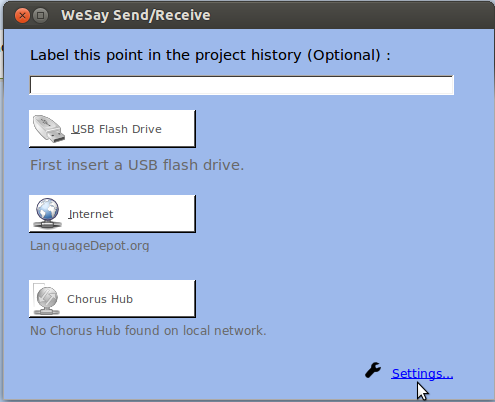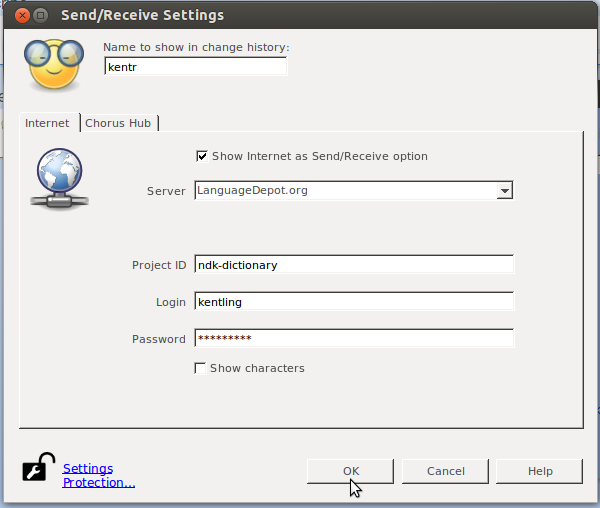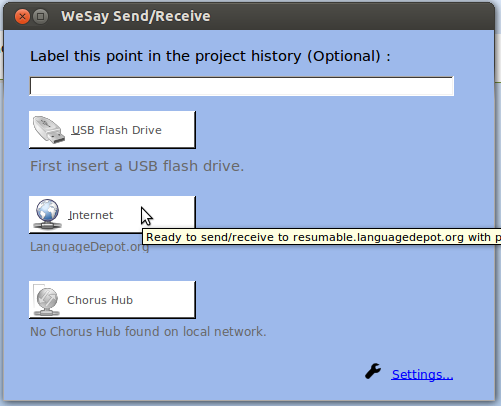I just finished a trip to Bunia and Nia-Nia, DRC, where I helped the Ndaka [ndk] and Mbo [zmw] communities develop draft alphabet charts and transition primers, the material for each language including all nine vowels (with ATR harmony) and the egressive/implosive stops. The Mbo version also includes the [p]/[ɸ] contrast, as /p/ is normally [ɸ] there. Each booklet includes a short story in the new draft orthography.
I’ve written before about using WeSay to collect language data in highly illiterate language communities, which was a major part of this work. And since I don’t want to do IT work full time (or rather I have other things to do with my time), I’m using WeSay in BALSA. So since much of this work would not have been possible without the work of many people, especially those working on BALSA and WeSay, I wanted to take a minute to thank them. Without a budget to do so materially, I’ll do that through describing the work here, and explicitly saying that if you work on WeSay and/or BALSA, please feel free to take and use this story and/or pictures in your own publications; this is your story, too.
We met for this workshop in Nia-Nia, DRC, about an hour into the rainforest (by MAF) from Bunia, which is about an hour (again by MAF) from Entebbe, Uganda. We met in a church, with the Ndaka covering most of the workshop logistics, since this is their home turf. The Mbo are also a bit on the run these days from a militia conflict that hasn’t seemed to end yet. And they’re a smaller and more illiterate people group. So much so that one of the guys on the Mbo team didn’t participate in a dictation exercise, as we were practicing new letters. And yet, here they are, around a BALSA machine, using WeSay:
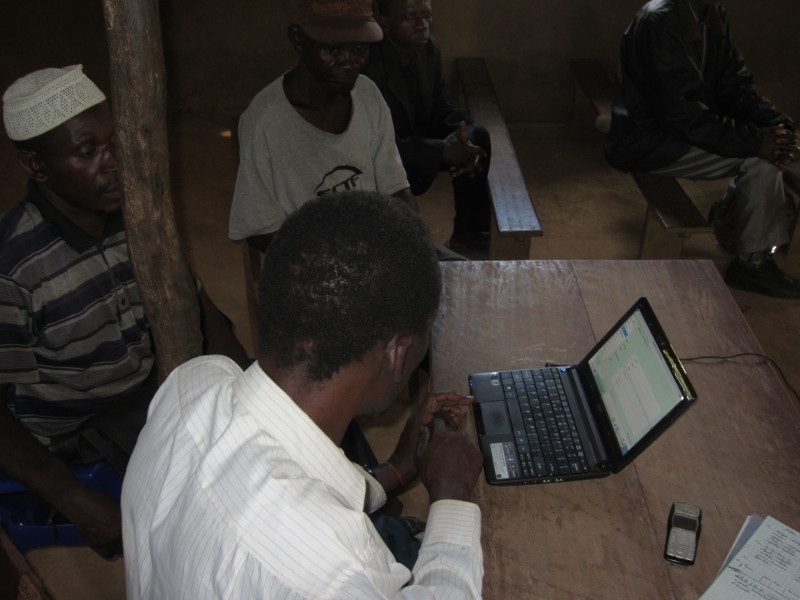
Admittedly, the guy touching the computer isn’t Mbo, but he’s helping them deal with the interface, and they’re choosing pictures through the Art of Reading interface in WeSay, which would seem to be even more popular with less literate communities.
This one is of the Ndaka team, using WeSay in BALSA independently:
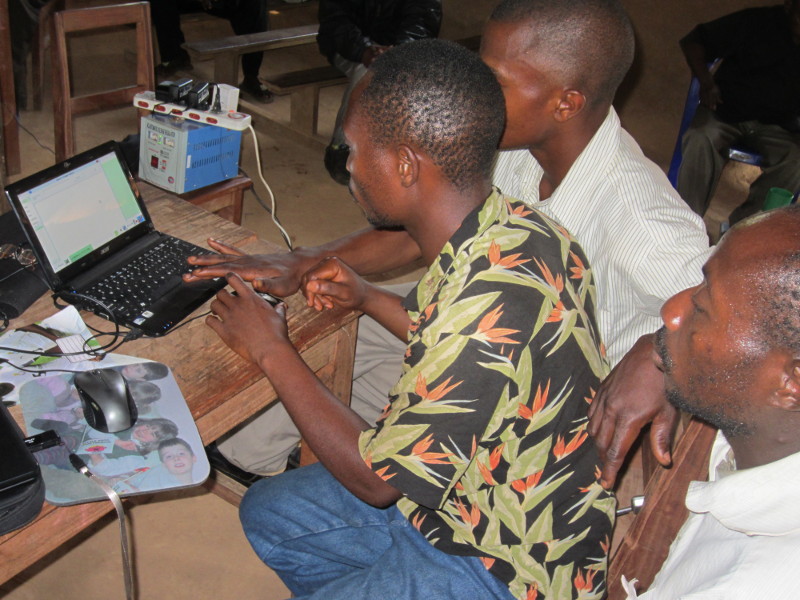
They’re also picking images to go with dictionary entries we put there earlier, though some people started modifying entries by the end of the workshop. Lest this seem trite, let me point out that this was the first time that ANY of them had used a computer of any kind. For some, it was the first time they had seen one. You can see in the background the current stabilizer, which is plugged into the generator we used to have electricity. Without the stabilizer, I wouldn’t plug in a computer, because of the risk of unstable current. After the stabilizer, we put a fridge guard. when I can, I put a second stabilizer in series, to even out what current irregularities the first one doesn’t catch. Which is all to say that this is not the most computer friendly place, even after the alternating dust and humidity, and the heat. But these guys took to the tasks, and were able to work somewhat independently on computers for the first time. Having tried this in similar contexts with other software, I attribute this success entirely to WeSay and BALSA. Thanks, guys, for making that possible.
Here is the same team from another angle:
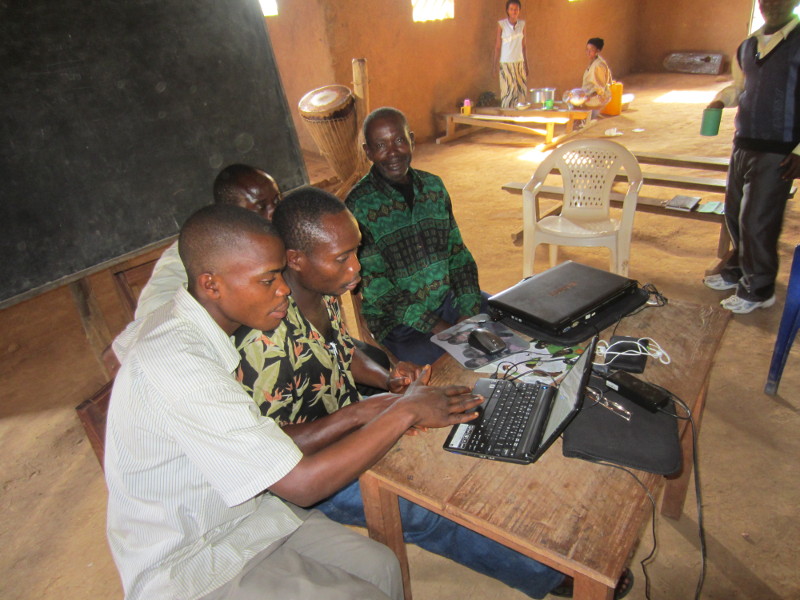
And here is one with other people hanging around, showing that this is truly a community affair:
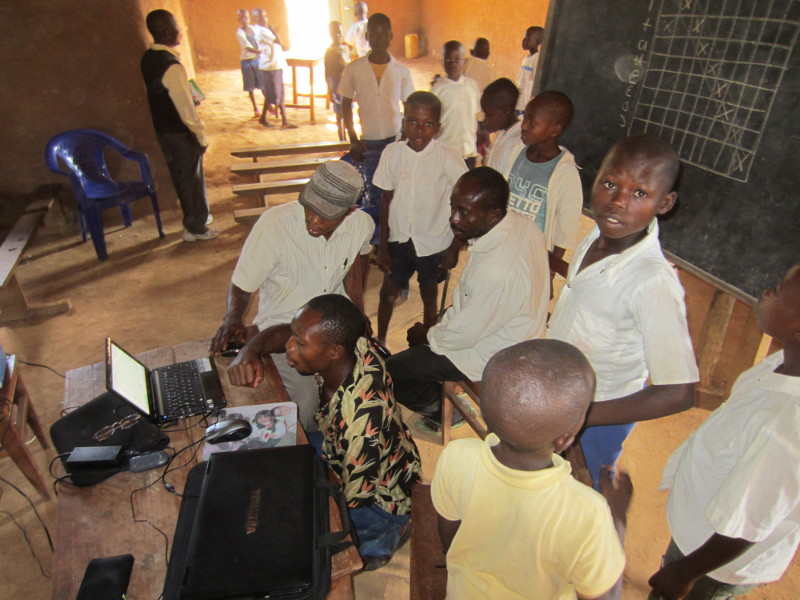
So this workshop was a success in part because people who had never used computers before (including the elementary school principal, shown in the background of this last pic), were able to get up and running in very little time, with very few frustrations. They even enjoyed the work so much, I had to kick them out several evenings, after it was already too dark to walk home. So thanks to everyone involved, for your part in making this happen.
